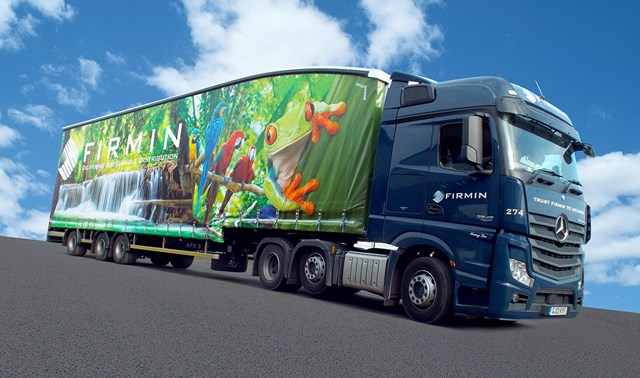Government permits ‘long lorries’ on British roads – but are they safe?

The Department for Transport (DfT) has today announced legislation permitting ‘long lorries’ to be rolled out on UK roads, estimating a £1.4bn boost to the economy as a result.
The new laws will allow longer semi-trailers (LSTs) of up to 18.55 metres on British roads, over two metres more than the standard size, from 31 May.
The government forecasts this could produce £1.4bn for the economy and help slash emissions, with new trailers able to move the same volume of goods for an average of eight per cent fewer journeys.
However, the announcement follows a protracted 11-year testing period for the legislation, which saw trials conducted to address safety concerns and training.
Campaign groups have previously attacked the proposals, arguing that LSTs are “greenwashing in overdrive,” and present a safety risk, with a bigger blind spot and extra swing.
A government consultation in 2021 saw 43 per cent of responders request that the vehicles be removed from the roads entirely, particularly over safety concerns in urban areas.
Responding to the announcement, Norman Baker from the Campaign for Better Transport said “this is a deeply retrograde step which will do nothing to tackle carbon emissions or air pollution and will disadvantage parallel rail freight routes.”
“There is already a significant problem with lorries causing damage to pavements, street furniture and parked cars, not to mention the danger to other road users and pedestrians. Rather than longer, heavier lorries the government should be investing in rail freight as a safer, cleaner and more efficient alternative with just one freight train capable of removing up to 129 lorries from our roads.”
Roads minister Richard Holden said that the government was introducing LST’s to ensure a “strong resilient supply chain” and that “our shops, supermarkets and hospitals are always well stocked.”
“These new vehicles will provide an almost £1.4 billion boost to the haulage industry, reduce congestion, lower emissions and enhance the safety of UK roads.”
Chris Yarsley, senior policy manager at Logistics UK said that operators will be “legally required to ensure appropriate route plans and risk assessments are made to take the unique specifications of LSTs into account.”
“In addition to these new legal requirements, operators will also be expected to put in place extra safety checks including driver training and scheduling, record keeping, training for transport managers and key staff, and loading of LSTs.”
There are currently 3,000 ‘long lorries’ on British roads, with trials attracting big brands such as Greggs, Morrisons, Stobart, Royal Mail, and Argos.